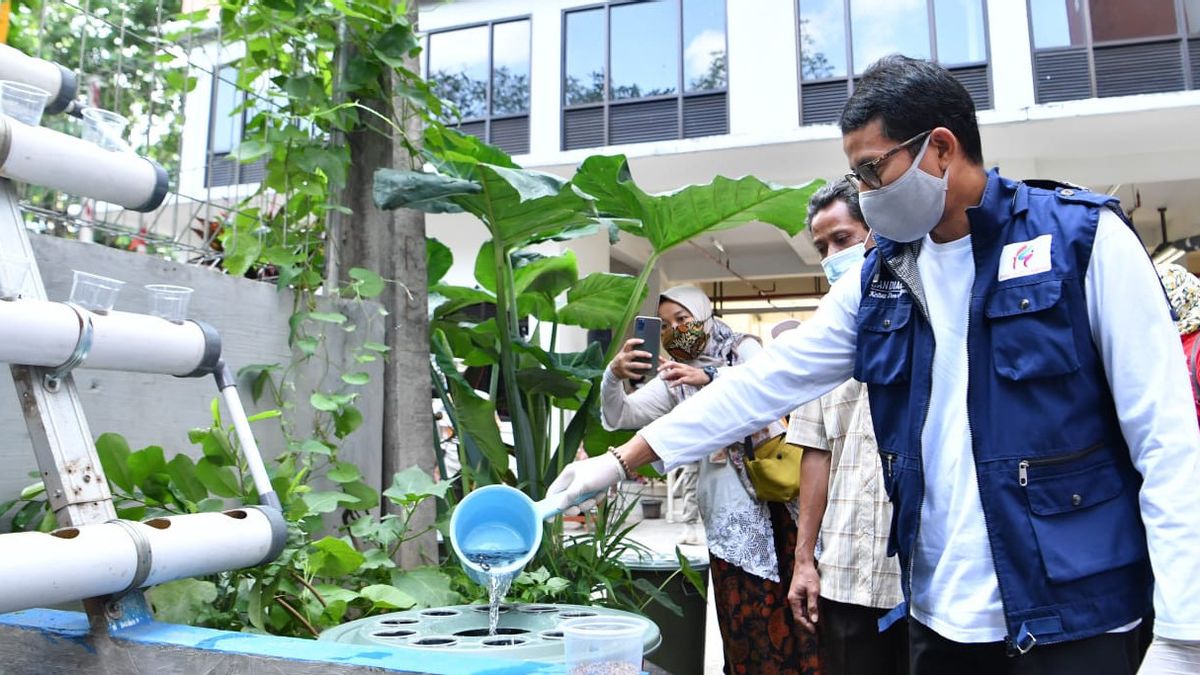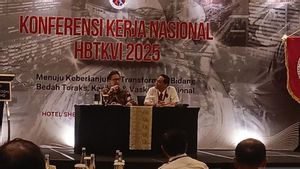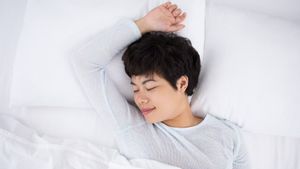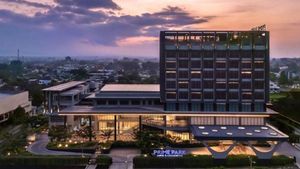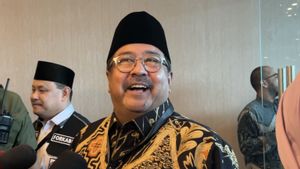JAKARTA - The COVID-19 pandemic that is still hitting Indonesia has an impact on the national economy. The high price of basic necessities makes it difficult for households to meet the food needs needed during a pandemic.
To maintain food readiness, United Indonesia Volunteers (RIB) Against COVID-19 carried out agricultural innovations such as using a system of cultivating vegetables and fish in buckets or aquaponics budikdamber.
RIB Against COVID-19 in collaboration with the Hidrofresh Farmers Group 2 Rusunawa Pengadegan, South Jakarta, transforming narrow spaces into productive green land by planting pak coy, kale, spinach, and celery as well as fish farming.
Implementing an urban farming system, 26 members of this farmer group try to meet their independent food needs when the impact of COVID-19 hits their economy.
United Indonesia Volunteers took the initiative to support community empowerment activities carried out by residents of the Pengadegan Rusunawa.
The chairman of Indonesian Volunteers United Against COVID-19, Sandiaga Uno, admitted that he heard many complaints from residents because he had reduced household expenses due to the impact of the pandemic. In fact, many residents have lost their jobs or working hours.
"Some of them are unable to pay the installments, they have difficulty facing other costs," Sandi said at Rusunawa Pengadegan on Friday, November 13.
Therefore, Sandi welcomes the idea of urban farming with the concept of an integrated fish farming ecosystem integrated with the vegetable production system, which is an innovation that has a big impact on survival.
"If the price of this food goes up, of course everything will be affected, that's why urban farming is very suitable for residents to apply," he said.
In addition to economic benefits, Sandi hopes that this activity can strengthen a sense of togetherness and create a culture of mutual cooperation in the neighborhood through farmer groups and SME businesses.
"Stay productive in finding new and fresh ideas to survive difficulties," explained the former Deputy Governor of DKI Jakarta.
United Indonesia Volunteers also provide training assistance for food cultivation management from agricultural experts, so that it is hoped that the recipient community will have the expertise to run it independently and sustainably.
Not only that, RIB also provided donut-making machines, cooling machines, and blenders to support the sustainability of the micro-businesses developed by Poktan Hidrofresh 2 MSMEs.
"Hopefully the self-help food self-sufficiency business can play a role in building the national economy, including developing regional potential-based and market-oriented businesses," Sandi said.
The chairman of the Pengadegan 2 Hidrofresh Farmer Group, Saparno, said that the initial capital to create urban farming was a self-help arrangement by fellow members by building two aquaculture fish ponds. Even though it is simple, he said, the budikdamber aquaponic method requires special skills so that the results obtained can be maximized.
"The limited capital and facilities owned are still far from sufficient to meet the food needs of groups and local residents who need it. Hopefully residents around here can get cheap vegetables and quality fish every day, "he said.
The English, Chinese, Japanese, Arabic, and French versions are automatically generated by the AI. So there may still be inaccuracies in translating, please always see Indonesian as our main language. (system supported by DigitalSiber.id)
